

Since its premiere in May, the TV series To the Wonder has sparked widespread discussions across the nation. Adapted from Li Juan's celebrated prose collection My Altay, the series revolves around the character Li Wenxiu, inspired by the author herself, commencing with Li's return from the bustling city to her roots—a tranquil village nestled in the Altay Prefecture, situated in the northernmost reaches of Xinjiang Uygur Autonomous Region in northwest China. The series explores the lives of Li and her family, portraying their daily interactions with Kazakh friends like Batay and Token amidst the pastoral wonder. With the popularity of the series, Altay Prefecture has now emerged as a source of fascination for audience in search of "poems and dreams".
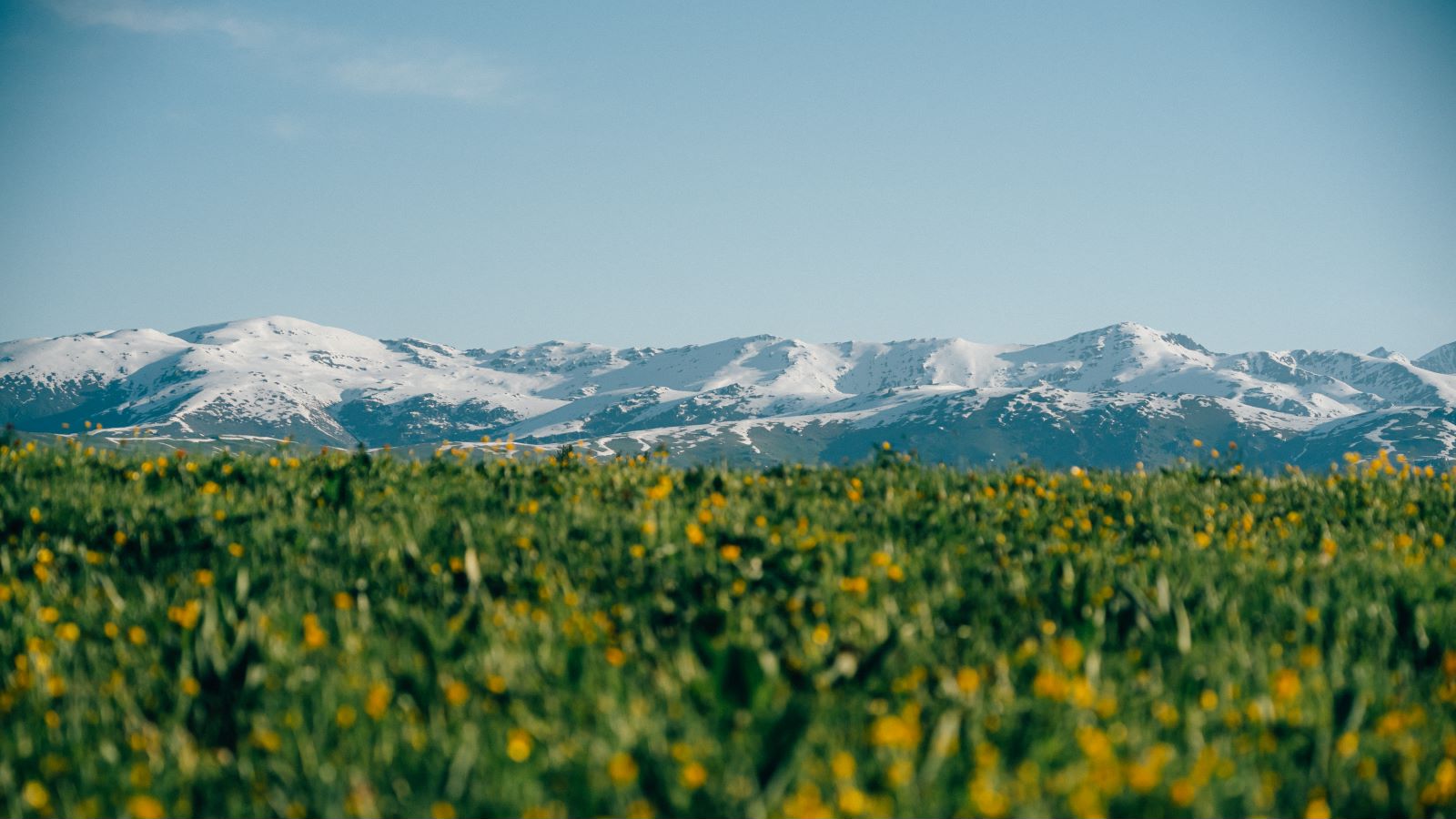
A still from the TV series To the Wonder shows the scenery of the summer pasture in Altay, northwest China's Xinjing Uygur Autonomous Region.
(Photo provided to Guangming Online)

The image shows Yu Shi during an interview with Guangming Online.
In this episode: Yu Shi, cast as Batay, joins Guangming Online to delve deeper into the essence of the character and explore his observations of the lives of Kazakh nomadic herders in Altay.

A still from the TV series To the Wonder shows Yu Shi as Batay playing the guitar. (Photo provided to Guangming Online)
Describing Batay, Yu Shi highlighted his complexity. "He is a rough-looking man with a delicate heart, a young Kazakh with a strong inner core and pure childlike heart," Yu said. Batay's personality is shaped by the demanding yet serene environment of Altay. "As a Kazakh child, he shoulders heavy responsibilities early on, like herding sheep while the environment, devoid of urban complications, cultivates a pure heart."
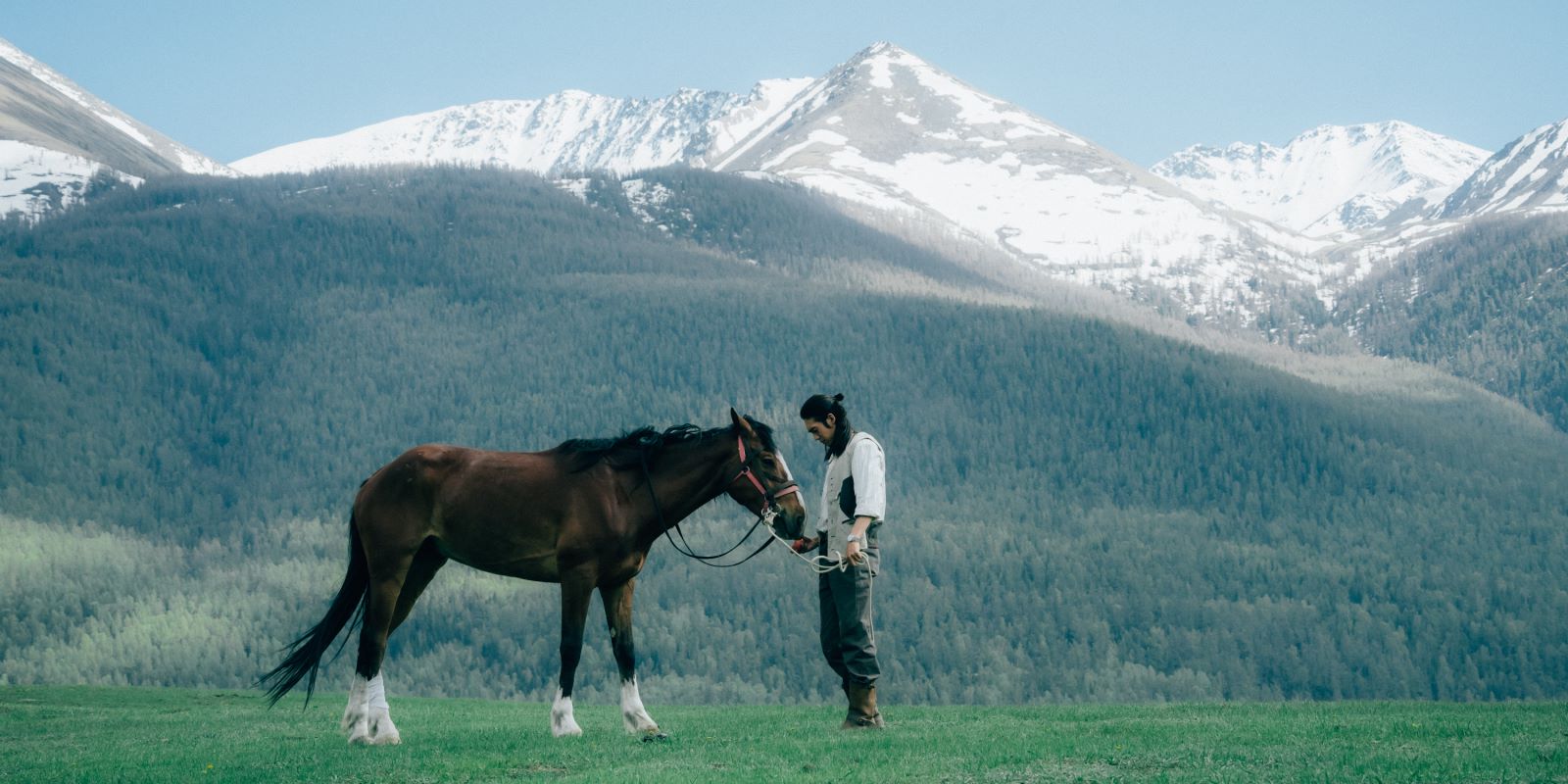
A still from the TV series To the Wonder shows Yu Shi as Batay tending a horse. (Photo provided to Guangming Online)
Yu Shi observed that life for Kazakhs in Altay, while tough, is marked by a sense of freedom and purity. "The troubles and challenges they face can be solved with their bare hands. They might worry about a sudden snowfall while moving to a new pastoral area or if they need to move to the winter pasture early. These issues can be solved with their hands and their wisdom, which not necessarily causes mental anxiety. "
There is a saying that the word "Kazakh" inherently means "brave and free people migrating across vast grasslands." In China, Kazakhs are mainly distributed in the Ili Kazakh Autonomous Prefecture in northern Xinjiang, the two Kazakh autonomous counties of Mulei and Barkol in eastern Xinjiang, and the Aksay Kazakh Autonomous County in Gansu. Li Juan, the original author of My Altay, mentioned in another of her works, Sheep Path, that "Kazakh herders in the nomadic regions of northern Xinjiang are probably the last and purest nomadic people in the world. The distances they migrate each year and the frequency of their moves are astounding."
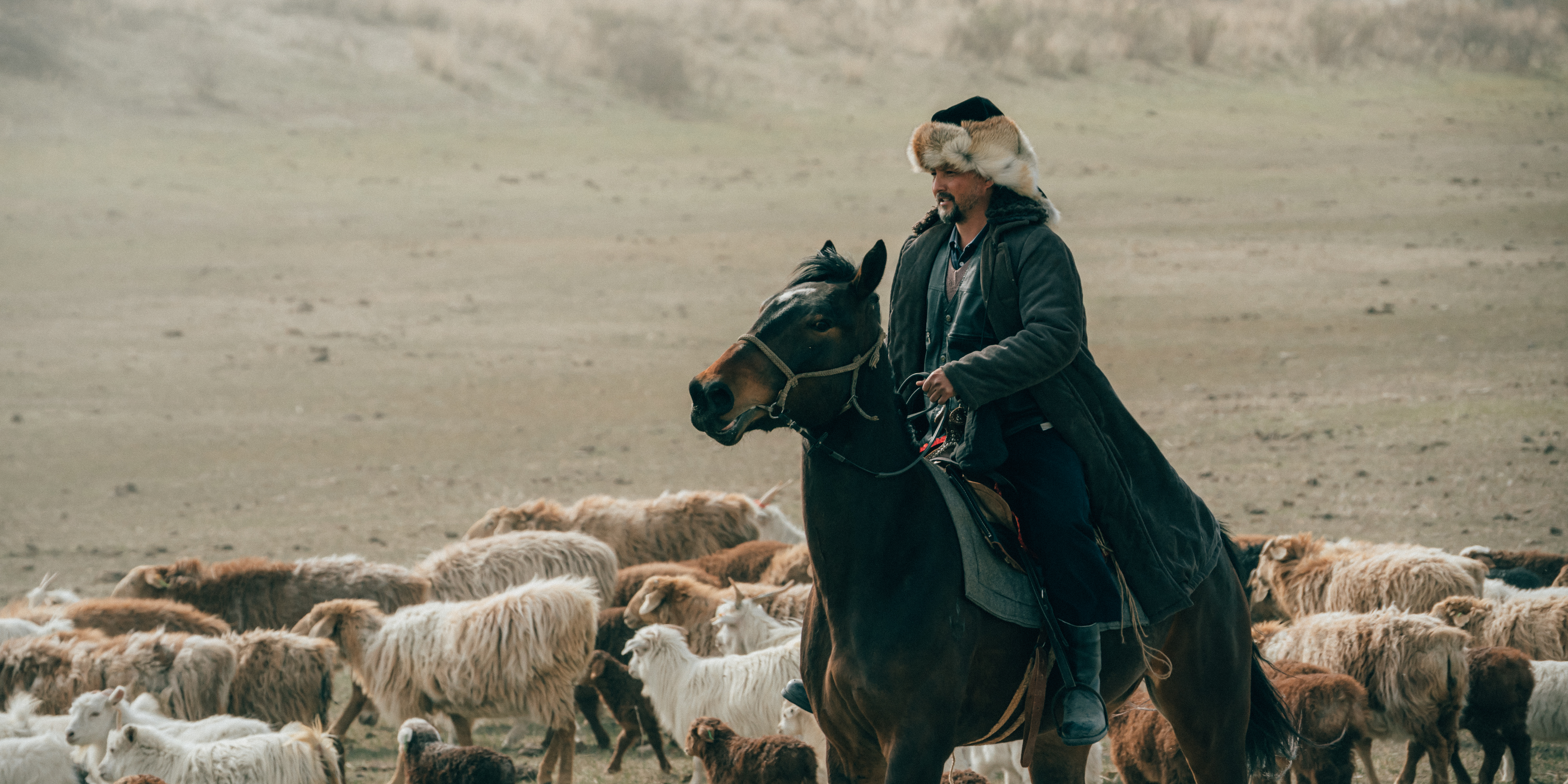
In the series, Batay's father rides a horse to herd the sheep during the migration.
Horses, referred to as the "wings" of the Kazakhs, have been the longest-standing companions of this nomadic people. Regarding the role of horse-riding in Kazakh culture, Yu Shi noted that Kazakh boys typically learn to ride not for competitions but for practical purposes like herding sheep. However, a twist of fate reveals to Batay the many other possibilities of horse-riding, such as becoming an athlete, veterinarian, or horse trainer. This openness to new experiences characterizes Batay's growth and increasing interest in the wider world.
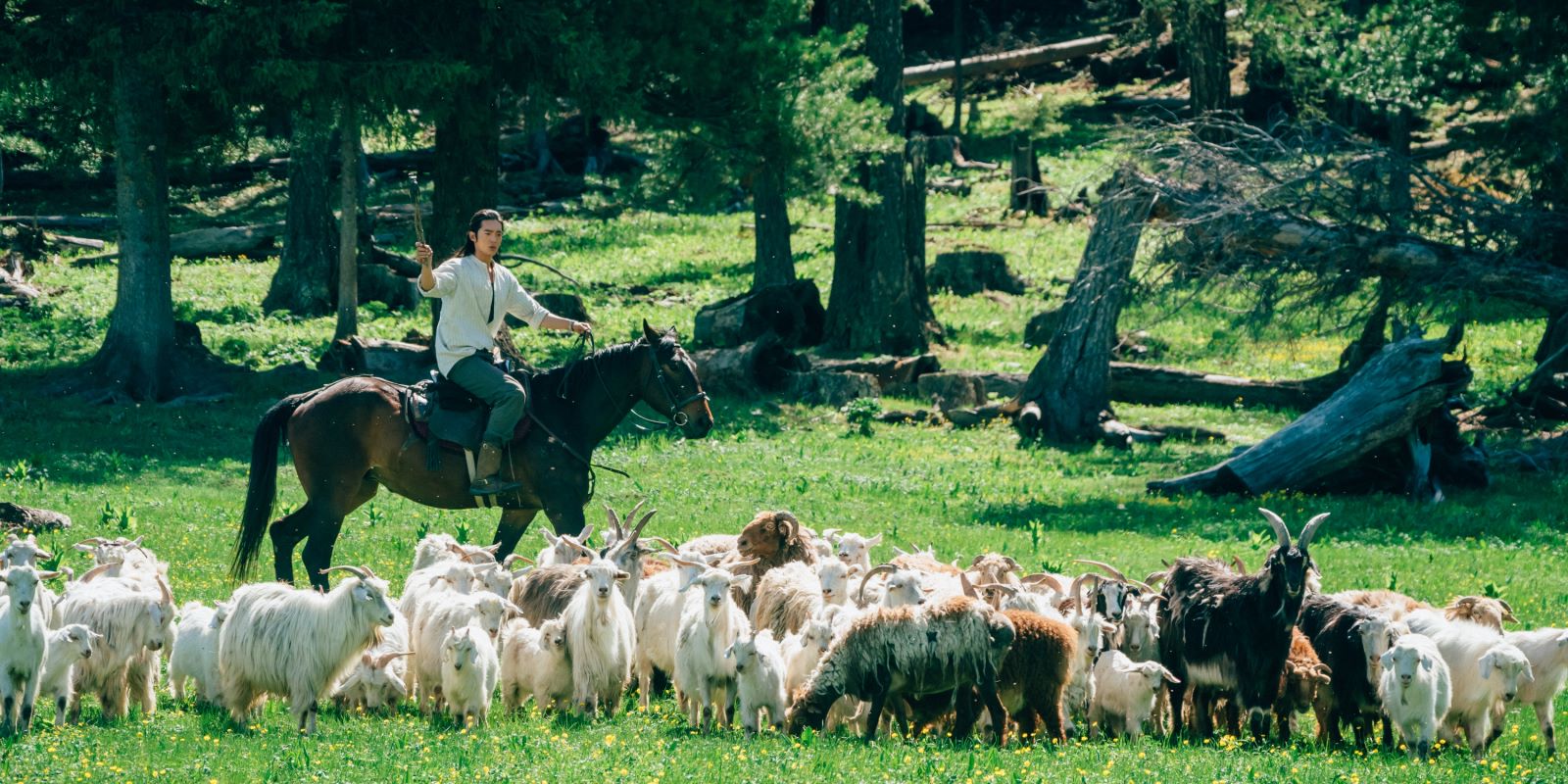
A still from the TV series To the Wonder shows Yu Shi as Batay grazing sheep. (Photo provided to Guangming Online)
In To the Wonder, Batay faces a major life choice: return to nomadic life or embrace the city. This conflict mirrors a generational divide among Kazakhs. Yu Shi, who spent months in Altay, feels a deep connection to the culture." Batay, unlike most Kazakh boys, loves new things like music and has long hair, hinting at his rebellious and artistic nature," Yu noted. This character's evolution reflects the broader narrative of younger Kazakhs grappling with tradition and modernity.
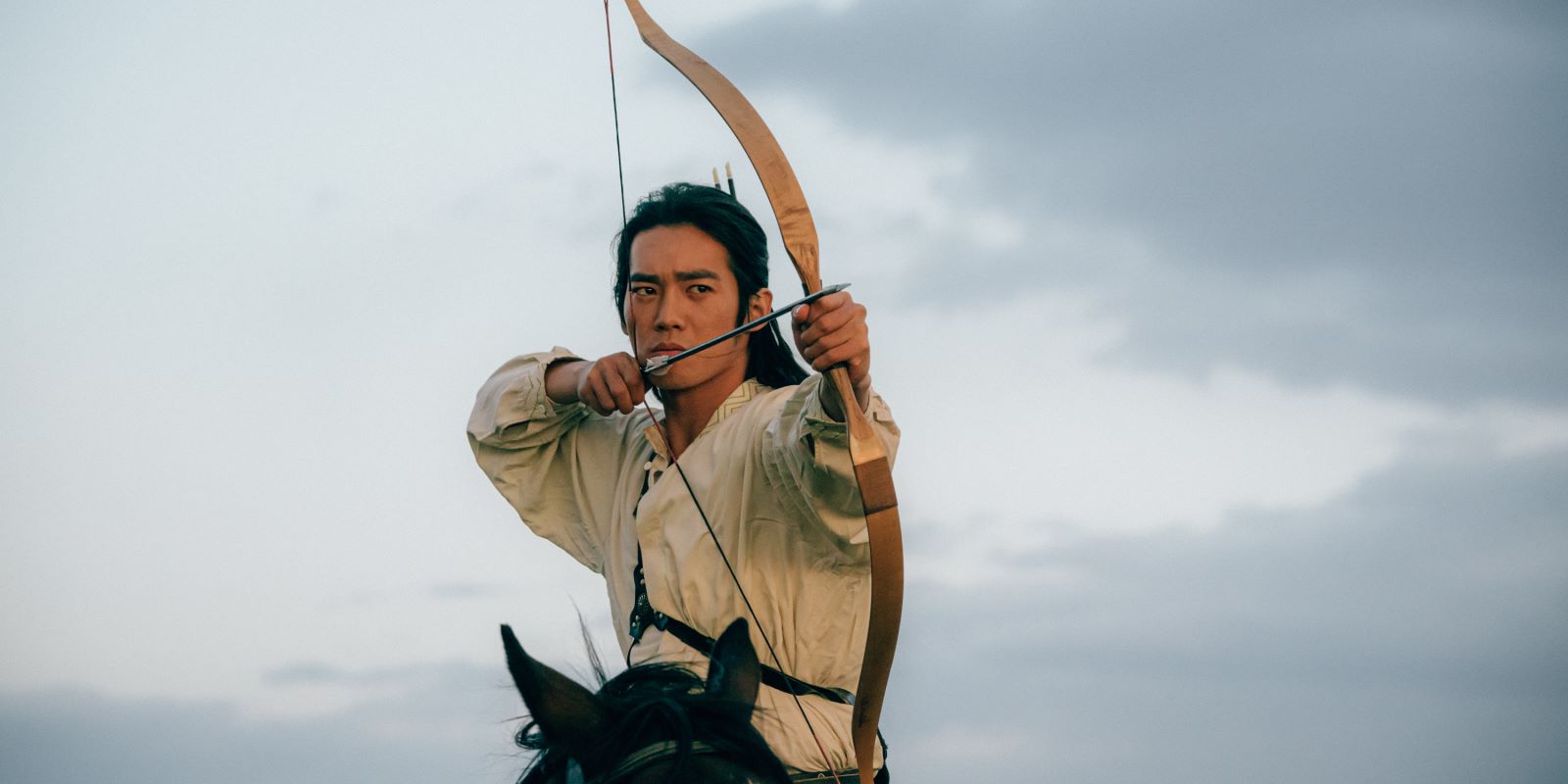
A still from the TV series To the Wonder shows Yu Shi as Batay shooting an arrow. (Photo provided to Guangming Online)
Drawing from his interactions with local Kazakhs, Yu Shi remarked, "Many young Kazakhs are trying to preserve their culture. They can embrace the city, but they should also remember their own culture." This sentiment reflects the delicate balance between embracing modernity and preserving cultural heritage.
Some media outlets have reported that many young Kazakhs have modernized traditional herding practices. Among them,some now graze sheep using motorcycles and engage in livestreaming while herding. With access to better education, some young Kazakhs attend universities in Beijing. After graduation, they choose diverse paths: some remain in the city, while others return to their hometowns to start businesses, such as selling Kazakh embroidery and handicrafts through livestreaming. As Xinjiang's tourism industry flourishes, some become tour guides, leading visitors on hiking and horseback riding trips in the mountains, staying in yurts, and enjoying local dairy products and meat dishes.
While some young Kazakhs move away from traditional herding jobs, their unique culture remains vibrant, especially in festivals, cuisine, clothing, and performing arts such as music and dance, including the playing of the dombra and the dance Kara Zhorga. Kazakhs place great importance on their festivals, such as Kurban-Ait and Nauryz.During these celebrations, they partake in traditional games like kokpar, a rugged test of riders' skills where they strive to seize and deliver a ram carcass, alongside horse racing, and kyz kuu, which translates to "catch up with the girl." Despite the passage of time, these cultural traditions have remained largely unchanged.
As To the Wonder continues to captivate audiences, it does more than just tell a story; it acts as a bridge between the past and the present, the traditional and the contemporary. The series not only highlights the unique cultural tapestry of the Kazakh people but also prompts viewers to reflect on their own cultural roots and the impacts of modernization.
Li Wenxiu's journey back to her roots and Batay's struggle between two worlds resonate with many young people today who are navigating similar paths of self-discovery and cultural preservation. The series serves as a reminder that while progress is inevitable, it is equally important to cherish and maintain one's heritage.
The scenic landscapes of Altay, beautifully captured in the series, invite viewers to appreciate the natural beauty and rich cultural history of Xinjiang. This visual and narrative feast has sparked a newfound interest in the region, encouraging more people to explore and understand the lives of its inhabitants.
Ultimately, To the Wonder is a celebration of cultural diversity and resilience. It encourages a dialogue about the importance of cultural identity in an increasingly globalized world. As viewers follow the characters' journeys, they are inspired to honor their own histories while embracing the possibilities of the future.
点击右上角![]() 微信好友
微信好友
 朋友圈
朋友圈

请使用浏览器分享功能进行分享
